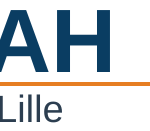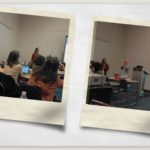Une bonne nouvelle pour le Laboratoire d’Innovation Pédagogique qui obtient une subvention du Fonds National Suisse pour le projet SPARK DigitComp.
Requérante et contact : Catherine Bonnat (catherine.bonnat@unifr.ch)
D’une durée de 12 mois le projet DigitComp propose une nouvelle approche de l’analyse de l’apprentissage basée sur le traçage volontaire dans des environnements d’apprentissage hybrides.
Ce projet vise le développement d’un assistant (« compagnon digital ») dédié à la traçabilité des interactions multimodales pour les environnements d’apprentissage hybrides (escape game), et à l’accompagnement des élèves (par un feedback personnalisé) et des enseignants dans le secondaire. Ce compagnon digital (DigitComp) servira d’interface entre les joueurs/apprenants et le maître de jeu/enseignant pour l’orchestration d’escape game.
Résumé du projet :
Student motivation and involvement in the activity is a central issue in educational science. With the digital tools development, new teaching methods have been integrated into classes with the aim of increasing student performance. More recently, escape games have been popularized by many initiatives in secondary schools. These pedagogical advances combined with technological ones, and the integration of digital technology in classroom, open up new research opportunities in educational sciences field. Our research focuses on the use of escape game in classroom and its orchestration to support the student in his/her activity by providing personalized feedback. It requires tracing what the student does. Tracing student’s activity is based on a learning analytics methodology, which consists for most studies of collecting digital traces of what the student does during his/her activity, and is based on a learner model. The question of student follow-up in a game-play context has not yet been studied because of its complex modelling and requires a crossover between two research fields (educational sciences and computer science).
DigitComp project proposes a totally novel approach for learning analytic based on voluntary tracing for hybrid learning contexts. It focuses on the development of an assistant (a digital companion) dedicated to trace multimodal interactions for hybrid learning settings (learning escape games), and to support students (by providing personalized feedback) and teacher in lower secondary school. This project differs from conventional approaches because of the possibility for students to voluntarily choose traces on which they want feedback. Besides the multidisciplinary (educational and computer sciences) nature of the project, which is still little used in the field, gives it a rich and innovative dimension.
DigitComp project is based on an existing escape game (health education topic) and on computer tools (trace software). In order to design, develop, implement and test the DigitComp, we will adopt an original methodology grounded on multidisciplinary (educational sciences and computer science) and collaboration with practitioners (user-centered and design-based research methodologies). Expected results are (1) pragmatic: the design of a « digital companion » prototype to support student and teacher in an educational escape game context on health education, (2) technical: tracing students’ interactions with a mixed environment (digital and tangible) due to the escape game specificities, (3) methodological: progress is expected on data processing by combining learning analytics and learner modelling. Expected impacts are therefore scientific, societal and economic. Indeed, results obtained should lead to the approach of scientific questions that have not yet been explored and referenced, and thus help to remove scientific obstacles. In addition, the use of the digital companion makes it possible to revisit the way games are integrated and used in the classroom, and thus contributes to proposing a new unconventional approach that places the student at the activity center. Finally, these contributions would encourage the implementation of this type of new activity in class and could be transposed to non pedagogical escape games.



